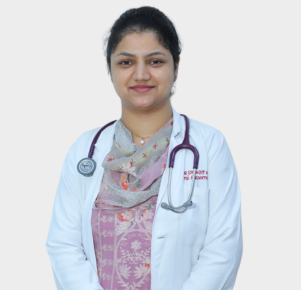Breastfeeding: The First Step Towards a Newborn’s Holistic Development By Dr. Sukhjeet Kaur, Senior Pediatrician, EMC Cradle Hospital
Breastfeeding is not merely a natural process—it is the newborn’s first shield of protection. It serves as a complete source of nutrition for infants and is one of the most effective ways to safeguard them from infections and life-threatening illnesses during their early days. According to Dr. Sukhjeet Kaur, Senior Pediatrician at EMC Cradle Hospital, initiating breastfeeding soon after birth plays a vital role in a child’s physical, mental, and emotional development.

Dr. Kaur emphasizes that breastfeeding within the first hour of birth is extremely crucial. The milk produced during this time is known as colostrum—a thick, yellowish fluid packed with essential nutrients. Colostrum boosts the infant’s immunity and helps the newborn fight infections in the early stages of life. It is often referred to as the “baby’s first vaccine” due to its natural immunizing properties.
Breastfeeding does more than nourish a baby—it also strengthens the emotional bond between mother and child. “Babies who are exclusively breastfed for the first six months tend to show better growth, increased cognitive development, and a reduced risk of obesity, diabetes, allergies, and other metabolic disorders later in life,” says Dr. Kaur.
Breastfeeding also offers significant health benefits for mothers. It stimulates the release of oxytocin, a hormone that helps the uterus contract and return to its normal size post-delivery. Additionally, women who breastfeed have a lower risk of breast and uterine cancers, and it has been shown to reduce the likelihood of postpartum depression.
According to WHO and UNICEF guidelines, infants should be exclusively breastfed for the first six months—no water, honey, or any other liquid or solid food should be given during this time. After six months, as the child begins to consume solid foods, breastfeeding should still continue. Experts recommend breastfeeding for at least two years to ensure continued nutrition, immunity, and emotional support for the child.
Dr. Kaur also points out that many social and family myths discourage mothers from breastfeeding—such as concerns about low milk supply or the baby remaining hungry. She stresses the need for proper counseling to dispel these misconceptions. At EMC Cradle Hospital, a team of experts is available to address all breastfeeding-related concerns, offering guidance and emotional support to mothers.
She further emphasizes that encouraging breastfeeding is a shared responsibility of both society and the government. Supportive measures such as maternity leave, private breastfeeding spaces at workplaces, and emotional encouragement can help women continue breastfeeding without stress.
In conclusion, EMC Cradle Hospital urges everyone to recognize the importance of breastfeeding, spread awareness about its benefits, and empower every mother to embrace this natural process—ultimately building a healthier and stronger generation.




